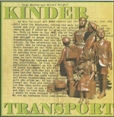 |
 |
|
 |
WOLFE'S
WORDS |
|||||
  Bottom Bottom |
Bad "Eytse" (Advice) |
Issue: 10.06 |
||||
|
People are fascinated with the "unterban" (subway) system. "The Taking of Pelham 1 2 3" is a remake of the 1974 thriller and stars Denzel Washington and John Travolta. It opened with an estimated $15 million in ticket sales at North American theatres, according to box-office tracking companies. On a "perzenlekh" (personal) note, I rode the New York City subways for three years while attending NYU. People advised me: "If you encounter a 'meshuge,' person, don't make eye contact. Don't talk to strangers. Read a "bukh" so you're not caught staring. (In 2009, I would be told to keep my iPod where it's safe so no one will take it.) Jim McDevitt ("Subway Etiquette"), writes, "After you have decided whether you want a local or express and have memorized the names of all your stops, you can go to the train platform. Hint! Don't stand too close to the edge. If you're not having a good day, someone may accidentally knock into you and you could find yourself on the tracks while the F train bears down on you." McDevitt continues, "Once on the train, let's just say the F train, don't make eye contact with anyone. It's a sign of aggression to make eye contact with someone on the subway. Of course, if you're packing an UZI in your briefcase ("teke"), then you're free to make eye contact if you're prepared to shoot...When you're hanging onto the straphanger, don't look down or make any eye contact. Think of it this way, no one should ever be able to think that you could identify them in a police ("politsey") line up." And most important, McDevitt says, "If you're stuck in a tunnel due to a fire, flood or accident or maybe the police are chasing someone on the tracks, NEVER TALK TO ANYONE. If someone talks to you, just look pleasant. Not too pleasant but not unfriendly. If you look too pleasant, we'll know you're an out-of-towner...Just be invisible and don't exist." Fortunately for Paul Deutschman, he did NOT follow the advice of Jim McDevitt. Mr. Deutschman had an article titled, "It Happened on the Brooklyn Subway" published in the Reader's Digest in May 1949. I had the pleasure of reading it in the book "More Stories for the Heart - Over 10 Stories to Warm Your Heart" compiled by Alice Gray (Multnomash Publishing Inc.) Read the entire book; it's wonderful. The story is shown below: IT HAPPENED ON THE BROOKLYN SUBWAY The car was crowded, and there seemed to be no chance of a seat. But as I entered, a man sitting by the door suddenly jumped up to leave, and I slipped into the empty seat. I've been living in New York long enough not to start conversations with strangers. But, being a photographer, I have the peculiar habit of analyzing people's faces, and I was struck by the features of the passenger on my left. He was probably in his late 30s, and when he glanced up, his eyes seemed to have a hurt expression in them. He was reading a Hungarian-language newspaper, and something prompted me to say in Hungarian, "I hope you don't mind if I glance at your paper." The man seemed surprised to be addressed in his native language. But he only answered politely, "You may read it now. I'll have time later on." During the half-hour ride to town, we had quite a conversation. He said his name was Bela Paskin. A law student when World War II started, he had been put into a German labor battalion and sent to the Ukraine. Later he was captured by the Russians and put to work burying the German dead. After the war, he covered hundreds of miles on foot until he reached his home in Debrecen, a large city in eastern Hungary. I myself knew Debrecen quite well, and we talked about it for a while. Then he told me the rest of the story. When he went to the apartment once occupied by his father, mother, brothers, and sisters, he found strangers living there. Then he went upstairs to the apartment he and his wife once had. It was also occupied by strangers. None of them had ever heard of his family. As he was leaving, full of sadness, a boy ran after him, calling, "Paskin bacsi! Paskin bacsi!" That means "Uncle Paskin." The child was the son of some old neighbors of his. He went to the boy's home and talked to his parents. "Your whole family is dead," they told him. "The Nazis took them and your wife to Auschwitz." Auschwitz was one of the worst Nazi concentration camps. Paskin gave up all hope. A few days later, too heartsick to remain any longer in Hungary, he set out on foot again, stealing across border after border until he reached Paris. He managed to immigrate to the United States in October 1947, just three months before I met him. All the time he had been talking, I kept thinking that somehow his story seemed familiar. A young woman whom I met recently at the home of friends, had also been from Debrecen; she had been sent to Auschwitz; from there she had been transferred to work in a German munitions factory. Her relatives had been killed in the gas chambers. Later, she was liberated by the Americans and was brought here in the first boatload of displaced persons in 1946. Her story had moved me so much that I had written down her address and phone number, intending to invite her to meet my family and thus help relieve the terrible emptiness in her life. It seemed impossible that there could be an connection between these two people, but as I neared my station, I fumbled anxiously in my address book. I asked in what I hoped was a casual voice, "Was your wife's name Marya?" He turned pale. "Yes!" he answered. "How did you know?" He looked as if he were about to faint. I said, "Let's get off the train." I took him by the arm at the next station and led him to a phone booth. He stood there like a man in a trance while I dialed her phone number. It seemed hours before Marya Paskin answered. Later I learned her room was alongside the telephone, but she was in the habit of never answering it because she had so few friends and the calls were always for someone else. This time, however, there was no one else at home and, after letting it ring for awhile, she responded. When I heard her voice at last, I told her who I was and asked her to describe her husband. She seemed surprised at the question, but gave me a description. Then I asked her where she had lived in Debrecen, and she told me the address. Asking her to hold the line, I turned to Paskin and said, "Did your wife live on such-and-such a street?" "Yes!" Bela exclaimed. He was white as a sheet and trembling. "Try to be calm," I urged him. "Something miraculous is about to happen to you. Here, take the telephone and talk to your wife!" He nodded his head in mute bewilderment, his eyes bright with tears. He took the receiver, listened a moment to his wife's voice, then cried suddenly. "This is Bela! This is Bela!" and he began to mumble hysterically. Seeing that the poor fellow was so excited he couldn't talk coherently, I took the receiver from his shaking hands. "Stay where you are," I told Marya, who also sounded hysterical. "I am sending your husband to you. We will be there in a few minutes." Bela was crying like a baby and saying over and over again, "It is my wife. I go to my wife." At first I thought I had better accompany Paskin, lest the man should faint from excitement, but I decided that this was a moment in which no strangers should intrude. Putting Paskin into a taxicab, I directed the driver to take him to Marya's address, paid the fare, and said good-bye. Bela Paskin's reunion with his wife was a moment so poignant, so electric with suddenly released emotion, that afterward neither he nor Marya could recall much of it. "I remember only that when I left the phone, I walked to the mirror like in a dream to see if maybe my hair had turned grey," she said later. "The next thing I know, a taxi stops in front of the house, and it is my husband who comes toward me. Details I cannot remember; only this I know--that I was happy for the first time in many years... "Even now it is difficult to believe that it happened. We have both suffered so much; I have almost lost the capability to not be afraid Each time my husband goes from the house, I say to myself, 'Will anything happen to take him from me again?" Her husband is confident that no horrible misfortune will ever befall them. "Providence has brought us together," he says simply. "It was meant to be." **** |
||||||
| See Marge's website | ||||||

|
Subscribe (free) to the Gantseh Megillah. The Gantseh Megillah and GantsehMegillah.com are designed and hosted by HannaVisioN






 Don't Make Eye Contact
With Anyone On The "Unterban"
Don't Make Eye Contact
With Anyone On The "Unterban"








 Printer
friendly page
Printer
friendly page